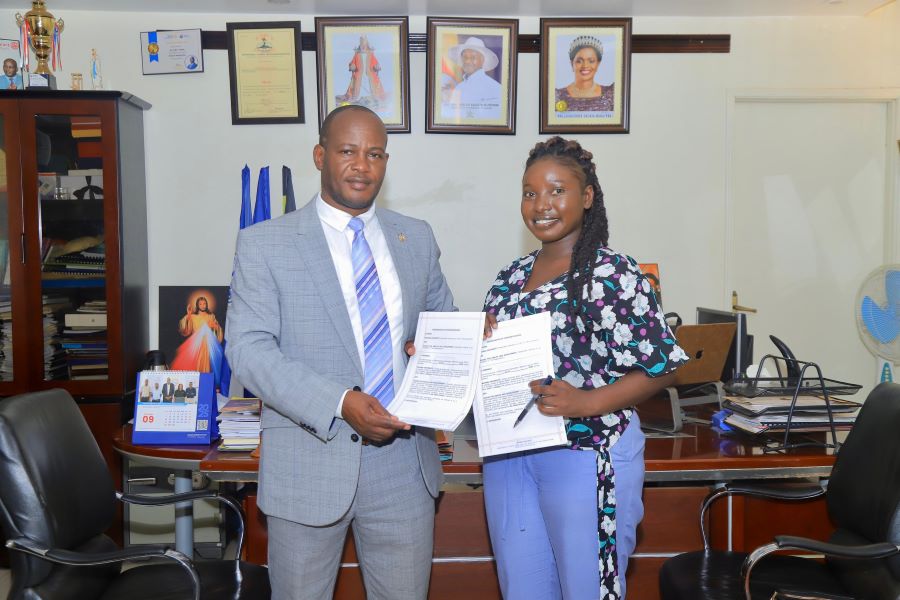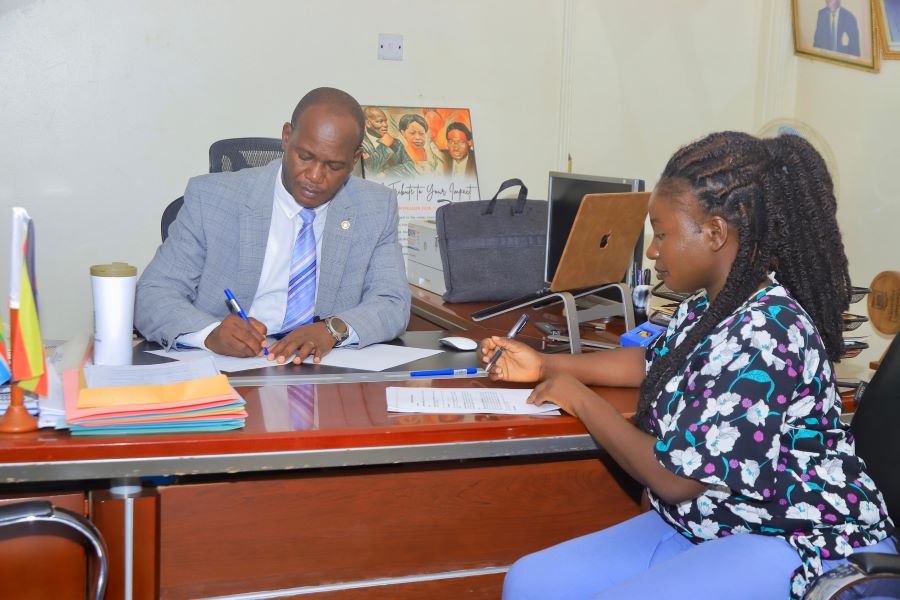
Voices has partnered with Nkumba University to advance knowledge and access to sexual and reproductive health services and combat gender based violence among varsity girls..
The memorandum of understanding was signed on 29 September 2025 by Ms. Mahoro Rose, Voices Team Leader and Dr. Jude Lubega, Nkumba University Vice Chancellor.

Through this collaboration, Voices will implement transformative projects at the university that will empower girls to know their rights, make correct decisions and informed choices regarding their sexual health. The interventions will also combat the rampant gender based violence in universities including on digital spaces.
“This partnership is a critical step in ensuring that young women at the university level are equipped with knowledge, tools and platforms to thrive. Together, we will build a model of empowerment that can be replicated in other universities and institutions across the country,” said Mahoro., Dr. Lubega appreciated Voices’ choice of Nkumba university as focal institution for girl empowerment intervention. “This is a very good initiative that I would love other Institutions to consider welcoming because we are now losing very many young girls who are dropping out due to lack of such information that would otherwise save them from losing their futures” he said.

Voice’s choice of focusing on girls in universities is informed by well documented girls experiences and studies. In 2017, the media was awash with news of a Makerere student Brendah Nakyejjo who jumped out of a boys’ hall of residence known as Mitchel to escape rape. Nakyejjo, on account, explained that a colleague seduced her to pay him a visit at Mitchel Hall but she later realized that it was a trap for her to forcefully engage in forceful sex with the male student who was identified as Jeremiah.
Research conducted by the Emerging Leaders Program last year at Makerere University indicated that 7.7% of continuing students are using drugs, a challenge affecting both male and female students, 46.3% of first-year students and 53.3% of continuing students reporting having made risky sexual decisions. A concerning 13.5% admitted to having unprotected sex with HIV-positive individuals, primarily driven by peer pressure.
According to the World Health Organization (WHO), in 2020, approximately 37% of women over the age of 15 in low and middle-income countries in the African region had experienced physical or sexual violence from a partner. Alarmingly, one in four young women aged 20-24 in sub-Saharan Africa has been subjected to physical, sexual, or psychological abuse by a partner.
The O3PLUS project assessment revealed that 25.6% of female students and 29.6% of male students in Ugandan universities believe that wife-beating is justified under certain circumstances. Additionally, 8.2% of university students have experienced sexual violence since enrolling, with the figure higher for female students (10%) compared to males (7%).
The study also highlighted that 5.2% of students have been forced to engage in sex against their will in the past 12 months, with females (9%) facing a higher risk than males (2.6%). Further, 6.2% of students reported experiencing physical abuse from a partner, with female students (7.7%) being more affected than their male counterparts (5.2%).
Voices’ work responds to this alarming violence against girls by leveraging evidence-based communication strategies that are aimed at behaviour change and empowerment of girls and in line with the organization’s mission of creating a world where every girl and woman is empowered, free from violence and able to shape her own future.

